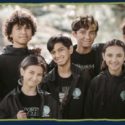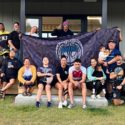Every couple of months, Mikaira Pau and Rima Williams take a small group of tāne grappling with the consequences of their own abusive and violent behaviour to Rangitoto Island in the Hauraki Gulf to spend three days in the realm of Tangaroa, Hinemoana and Papatūānuku.
The men are participants in the eight-week, Living Without Violence course that Rima runs through Te Whanau Rangimarie Trust, with the support of E Tū Whānau and the Department of Corrections.
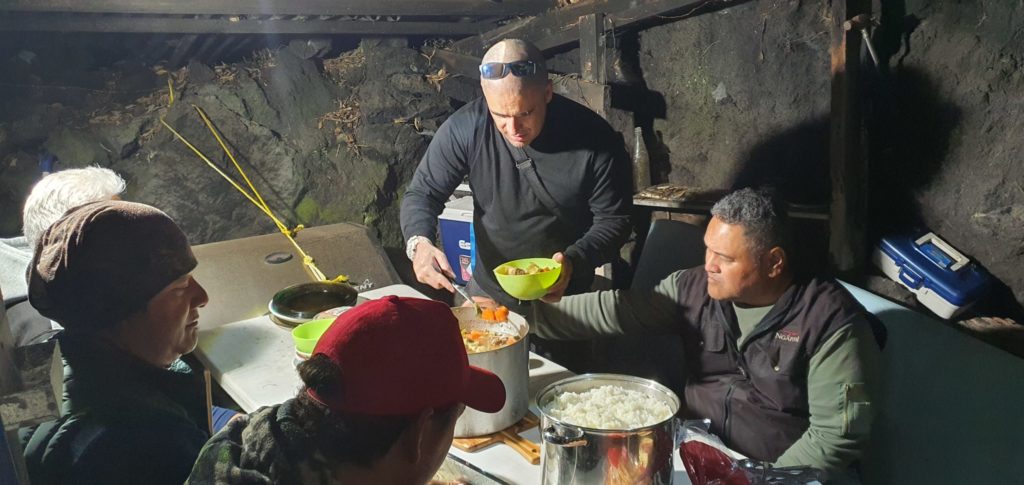
They stay in a couple of simple baches, talking, resting, strolling in the ngahere during the day. At night, they fish for flounder, cooking the catch if they’re lucky.
For most, it’s a rare opportunity to leave their Auckland lives behind and share kai, kōrero and time in an environment that offers insight and healing.
Mikaira and Rima have worked together for years. They hold each offender responsible for their actions. They also understand that each tāne is carrying pain.
“We ask these men to face their pain and look at the core beliefs that have encouraged their violent ways.”
Mikaira Pau
Mikaira is an experienced, well connected community worker, and a long-term E Tū Whānau practitioner. He brings rich Māori, Pākeha and Polynesian whakapapa to his mahi.
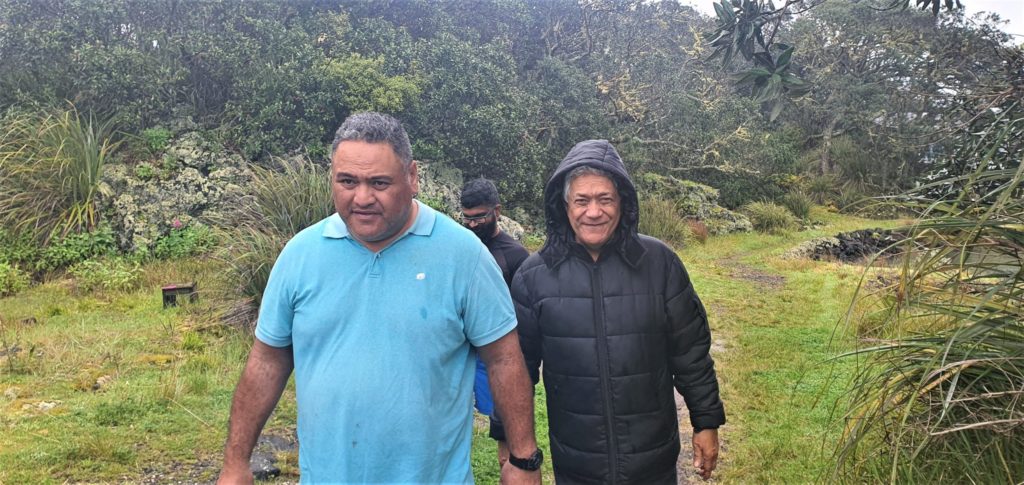
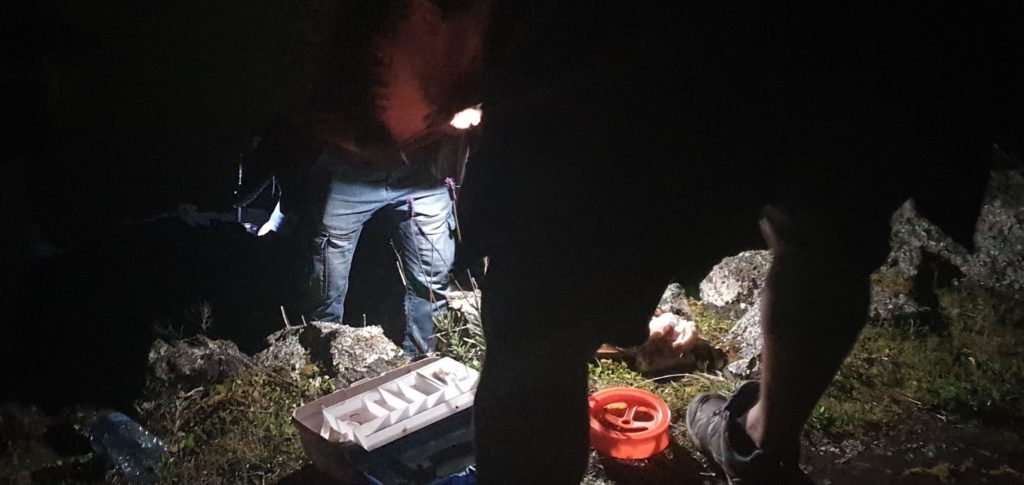
Rima became a Baptist Pastor in his native Cook Islands before qualifying as a counsellor and social worker in Aotearoa. He incorporates cognitive behaviour therapy techniques into his cultural and spiritual practice to help men identify their feelings and think before they act.
Welcoming tāne to Rangitoto Island
Mikaira, whose whakapapa includes Rangitoto tangata whenua, welcomes each intake with a pōwhiri.
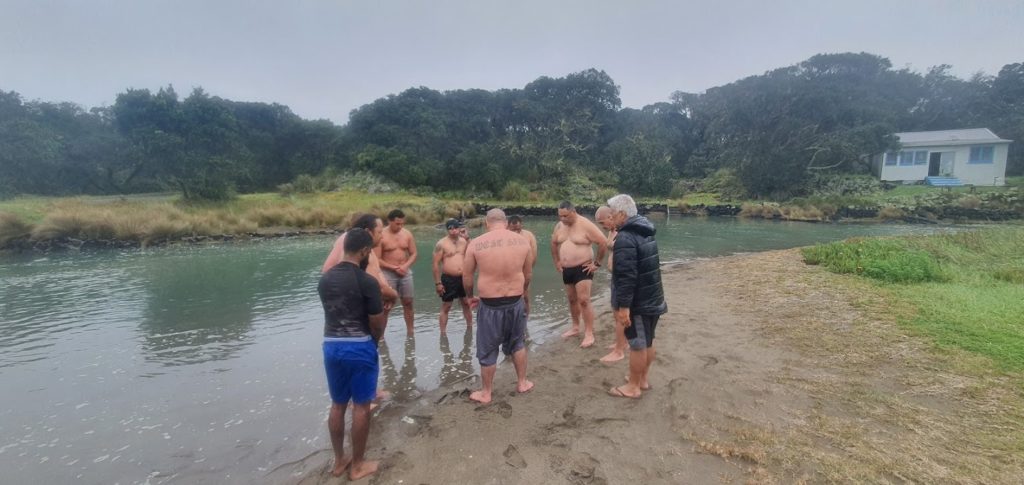
He tells them that from the moment they step off the boat they’re on ‘island time’.
“Over here we’re governed by Tangaroa, the god of the sea. We are also governed by a woman, Hinemoana, the mother of all the creatures in the sea. It’s a sacred space which we need to navigate with respect and ritual.”
Mikaira Pau
Using his deep understanding of the E Tū Whānau kaupapa, Mikaira skilfully weaves observations from te ao Māori, the natural world and the personal and cultural experiences of each tāne into a kōrero they can absorb and reflect on.
If they’re open, he tells them, the island can help rid them of old ways of thinking. It can help them find peace and enrich their ability to love others.
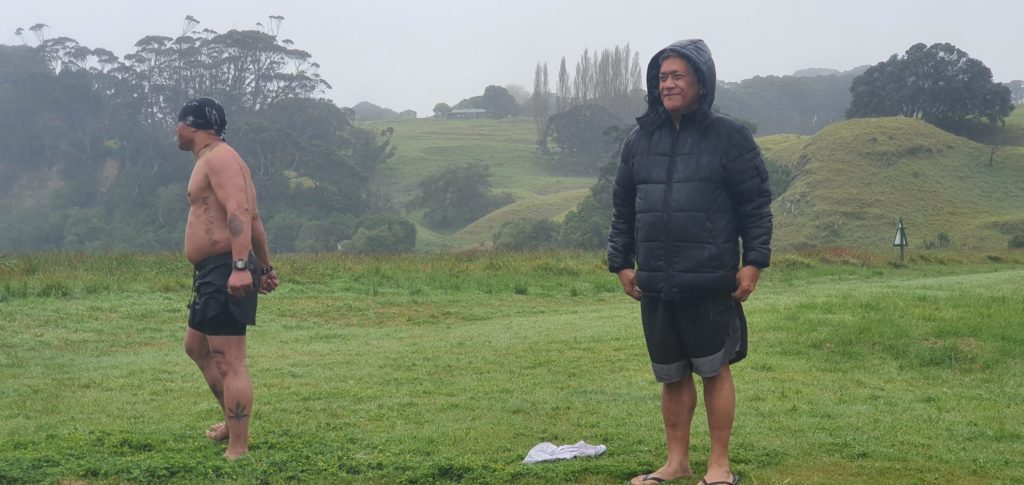
Whakawātea – Ritual cleansing
During the visit, the men – who come from diverse ethnic backgrounds – take part in Whakawātea, a simple but powerful cleansing ritual common to other cultural and spiritual traditions.
Accompanied by karakia, the men form a human chain and immerse themselves in the cool waters of an island estuary.
“We remind them that forces older and more powerful than ourselves exist.“
Mikaira Pau
The tāne respond with gratitude and a palpable sense of relief.
A pākeha man with a 20-year history of meth addiction talks of the lonely life he’s been living as a drug courier. He speaks of spirituality and the uncanny connections he’s making with people in the group. It fills him with hope and strengthens his determination to get the monkey off his back once and for all.
A man from Tonga, and another from Samoa nod in agreement when a Fijian Indian tāne says he’s feeling relaxed in mind and soul, “because this island reminds me of how we used to be as little kids back home.”
A father of nine from a small village in the Far North acknowledges that he needs help in his life. He’s grateful to be welcomed to the island and relishes the opportunity to talk with and learn from others who are also struggling to turn their lives around.
Mikaira and Rima know that the roots of whānau violence in Aotearoa are deep and complicated by history, poverty, cultural and spiritual alienation, substance abuse, and loneliness.
They know that some who complete the course will slip back into their old ways. Some will try again and again before they make lasting, positive change.
Then there are those – and there are many of them – who successfully finish their course and go on to live the lives of aroha and non-violence they’ve always dreamt of.
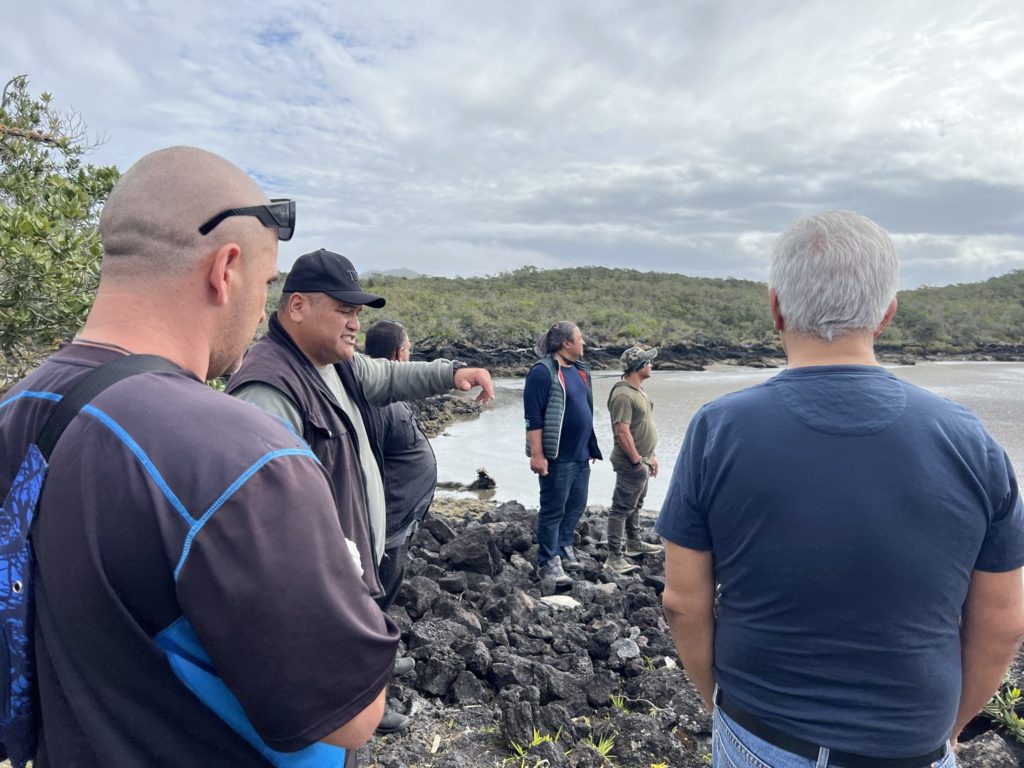
Want more?
Read about E Tū Whānau kaupapa, vision, and Mahere Rautaki (Framework for Change) 2019 – 2023.
Join the E Tū Whānau communities on Facebook, Instagram and YouTube.

